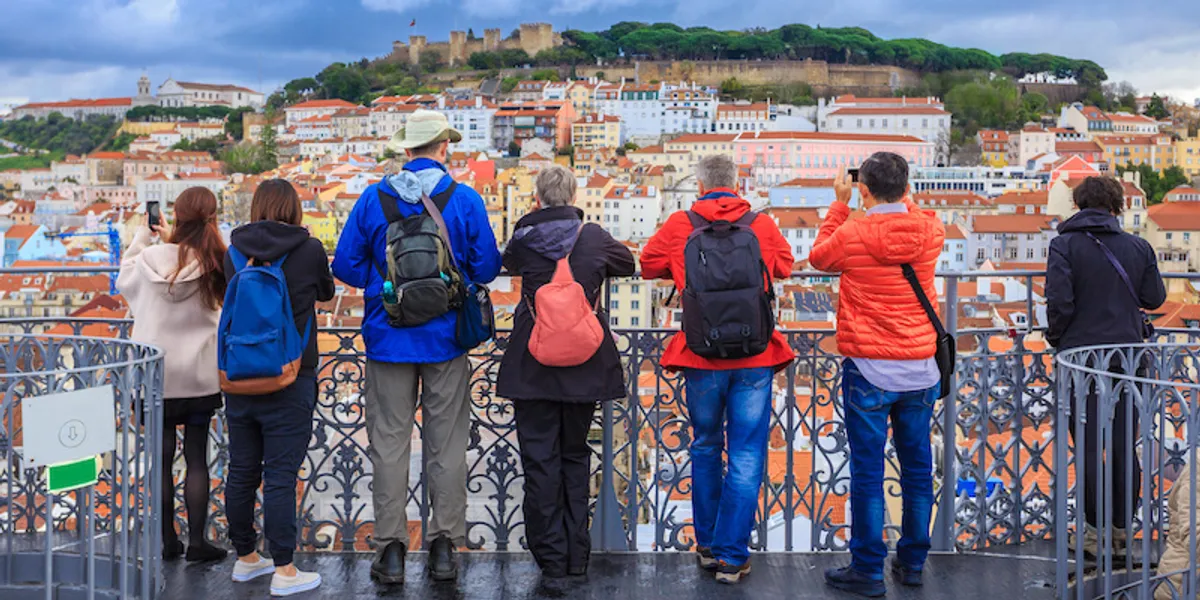Language is the foundation of human communication, allowing us to connect, share ideas, and learn from one another. It can, however, disconnect us when language barriers prevent comprehension and collaboration.
Travelling to other countries exposes us to many cultural experiences but challenges navigating unfamiliar languages. Learning a new language for travel is an investment in your global adventures, allowing you to communicate more effectively, form meaningful connections, and better understand different cultures.
This article will examine the best languages when travelling the world, how to learn them, and what to speak – aside from the universal English language.
Importance of Learning Languages for Travellers
Language is the key to understanding and appreciating diverse cultures worldwide. Learning another language is especially important for travellers because it greatly enhances their experiences in foreign lands. A few key phrases of the most useful languages can open doors and create connections that would otherwise go unnoticed, making travel more convenient and enriching.
The importance of language learning for travellers, how to go about it, and which languages are most useful when exploring regions such as Europe and Asia are discussed below.
- Improved Communication
Knowing the local language makes navigating, asking for directions, and conversing with locals easier.
- Enhanced Cultural Experiences
Language proficiency allows you to better understand local customs, traditions, and art forms, which enriches your travel experience.
- Deeper Connections
Speaking the local language allows you to form stronger bonds with others while travelling, resulting in a more authentic and memorable experience.
- Safety and Convenience
Understanding the local language can help avoid potential misunderstandings or dangerous situations while making your travels more comfortable.
The 10 Best Languages for Travellers
Travelling worldwide is an enriching and exciting experience, but communicating with the locals can be even more rewarding. Acquiring a handful of essential expressions in the native tongue can unlock opportunities and foster relationships that may have otherwise gone unnoticed.
The ten best languages for travellers, with a wide range of utility in various regions, are listed below, along with an introduction to their importance and basic phrases to help you get started.
1. Spanish
With over 500 million speakers, Spanish is the world’s second most widely spoken language. As an official language in 21 nations, it is imperative for voyagers to the Americas and some parts of Europe to familiarize themselves with it.
Regions Where it is Spoken:
- Spain
- Mexico
- Central America
- South America
- Parts of the Caribbean
Basic Greetings and Sentences:
- Hola (Hello)
- Buenos días (Good morning)
- Gracias (Thank you)
- Por favor (Please)
- ¿Dónde está…? (Where is…?)
2. Mandarin Chinese
Mandarin Chinese is the world’s most widely spoken language, with over a billion speakers. It is crucial to know for travel throughout East Asia since Mandarin is the official language of China, Taiwan, and Singapore.
Regions Where it is Spoken:
- China
- Taiwan
- Singapore
Basic Greetings and Sentences:
- 你好 (Nǐ hǎo – Hello)
- 谢谢 (Xièxiè – Thank you)
- 请 (Qǐng – Please)
- 哪里 (Nǎlǐ – Where is…)
3. French
With official status in 29 nations and usage on five continents, French has a notable global presence as a language. Learning French can make travelling in Europe, Africa, and parts of the Americas and Asia much easier. It is also an important language in fashion, food, and the arts.
Regions Where it is Spoken:
- France
- Canada
- Belgium
- Switzerland
- Many African Countries
Basic Greetings and Sentences:
- Bonjour (Hello)
- Merci (Thank you)
- S’il vous plaît (Please)
- Où est…? (Where is…?)
4. German
The significance of German in Europe stems from its status as the most widely spoken native language in the European Union and its official recognition in multiple countries. It is especially useful when travelling in Central Europe.
Regions Where it is Spoken:
- Germany
- Austria
- Switzerland
- Liechtenstein
Basic Greetings and Sentences:
- Hallo (Hello)
- Guten Tag (Good day)
- Danke (Thank you)
- Bitte (Please)
- Wo ist…? (Where is…?)
5. Russian
Russian is Europe’s most widely spoken native language and is also widely spoken in Eastern Europe and Central Asia. Learning Russian can help you travel more easily in these areas and better understand their diverse cultures. It is also used in literature, music, and science.
Regions Where it is Spoken:
- Russia
- Belarus
- Kazakhstan
- Kyrgyzstan
Basic Greetings and Sentences:
- Здравствуйте (Zdravstvuyte – Hello)
- Спасибо (Spasibo – Thank you)
- Пожалуйста (Pozhaluysta – Please)
- Где…? (Gde…? – Where is…?)
6. Arabic
Arabic’s official status in 25 nations and its broad usage throughout the Middle East and North Africa underscores its significance as a language in those regions. Learning Arabic can help you better understand these regions and communicate with the locals.
Regions Where it is Spoken:
- Middle East
- North Africa
Basic Greetings and Sentences:
- مرحبا (Marhaba – Hello)
- شكرا (Shukran – Thank you)
- من فضلك (Min fadlak – Please)
- أين…؟ (Ayna…? – Where is…?)
7. Japanese
Japan is a popular tourist destination for its rich history, stunning scenery, and distinctive culture. Learning Japanese can enhance your experience and make navigating the country easier.
Regions Where it is Spoken:
- Japan
- Brazil
- Guam
Basic Greetings and Sentences:
- こんにちは (Konnichiwa – Hello)
- ありがとう (Arigatou – Thank you)
- お願いします (Onegaishimasu – Please)
- どこですか…? (Doko desu ka…? – Where is…?)
8. Hindi
The most widely spoken language in India, a diverse and vibrant country with many cultural experiences to offer visitors, is Hindi. Learning Hindi can help you communicate more effectively and appreciate the richness of Indian culture.
Regions Where it is Spoken:
- India
- Nepal
- Fiji
Basic Greetings and Sentences:
- नमस्ते (Namaste – Hello)
- धन्यवाद (Dhanyavaad – Thank you)
- कृपया (Kripya – Please)
- कहाँ है…? (Kahan hai…? – Where is…?)
9. Portuguese
The official language of nine countries, Portuguese, is spoken by over 230 million people worldwide. Learning Portuguese can help you travel more easily to Portugal, Brazil, and parts of Africa and Asia.
Regions Where it is Spoken:
- Portugal
- Brazil
- Angola
- Mozambique
- Other Lusophone Countries
Basic Greetings and Sentences:
- Olá (Hello)
- Bom dia (Good morning)
- Obrigado/a (Thank you)
- Por favor (Please), Onde fica…? (Where is…?)
10. Italian
Italy is a popular tourist destination for its rich history, picturesque landscapes, and delectable cuisine. Learning Italian can help you have a better travel experience and appreciate Italian culture.
Regions Where it is Spoken:
- Italy
- Switzerland
- San Marino
- Vatican City
Basic Greetings and Sentences:
- Ciao (Hello)
- Buongiorno (Good morning)
- Grazie (Thank you)
- Per favore (Please)
- Dove si trova…? (Where is…?)
By acquiring these languages, travellers can significantly enhance their communication skills and foster connections with individuals worldwide. Whether you want to improve your understanding of local culture, make new friends, or simply navigate foreign lands more easily, investing time and effort in language learning can significantly impact your global adventures.
How to Learn a New Language for Travelling
Although it can be challenging, acquiring a new language is invaluable for travellers seeking to maximize their international experiences. Language proficiency allows you to communicate effectively, foster cultural understanding, and create long-lasting memories.
Tips and Tricks for Language Learning
This section will provide language-learning tips and tricks on how to learn a new language for travelling.
- Set Clear Goals
Set specific language learning objectives, such as conversational fluency or basic survival phrases, and devise a study plan to achieve them.
- Consistency is Key
Allocate some time each day to practice, even for only a few minutes. Regular practice helps to reinforce your learning and keep you on track.
- Focus on the Essentials
Learn the most useful phrases and vocabulary for travellers, such as greetings, directions, and numbers.
- Immerse Yourself
To improve your listening comprehension and pronunciation, surround yourself with the language through music, movies, and podcasts.
- Practice Speaking
Don’t be afraid to make mistakes; speaking with native speakers or other learners can help you gain confidence and fluency.
- Utilize Mnemonic Devices
To help remember new vocabulary and phrases, use memory aids such as acronyms, associations, or rhymes.
- Be Patient
Learning a language takes time and effort. Celebrate small victories, and don’t let setbacks discourage you.
Resources to help with language learning
Regardless of your level of proficiency or preferred learning method, the resources listed below are some of the best for learning a new language.
- Language Courses
Enroll in a language course at a nearby language school, community center, or university to benefit from structured learning and teacher support.
- Online Courses
Language learning platforms like Duolingo, Babbel, and Rosetta Stone offer language courses that can be completed at your own pace and customized to suit your learning style.
- Mobile Apps
Language learning apps such as Drops, Memrise, and Anki can help you practice vocabulary and grammar while on the go.
- Language Exchange
Websites like Tandem and Conversation Exchange connect you with native speakers for language practice and cultural exchange.
- Travel
If possible, spend time in a country where the language is spoken to immerse yourself in the culture and practice your skills in real-life situations.
- Books and Textbooks
Language learning books and textbooks provide grammar explanations, vocabulary lists, and exercises to help you learn the language.
- YouTube and Podcasts
Access free language learning content on YouTube channels like Easy Languages and podcasts like Coffee Break Languages.
By following these suggestions and utilizing available resources, you can improve your language skills, which will enhance your travel experiences and allow you to form meaningful connections with people worldwide. Remember that patience and persistence are key; before long, you’ll be well on your way to becoming a confident and multilingual traveller.
Language Learning for Global Travellers
When travelling and exploring the world, the power of language cannot be overstated. Knowing the local language improves your travel experience by allowing you to easily navigate, immerse yourself in the culture, and form genuine connections with locals. You not only enrich your own life by learning the language of the country you visit, but you also demonstrate respect for the people and their culture.
So, get started on the exciting language learning journey, and you’ll be able to open the doors to a world of unforgettable experiences and meaningful connections. travelling the world with linguistic skills and a deep appreciation for diverse cultures will make your journey more convenient, rewarding, and fulfilling. Accept the power of language as the key to unlocking the true essence of your global adventures.

